New veterinary nursing degrees could ease NI staff shortages
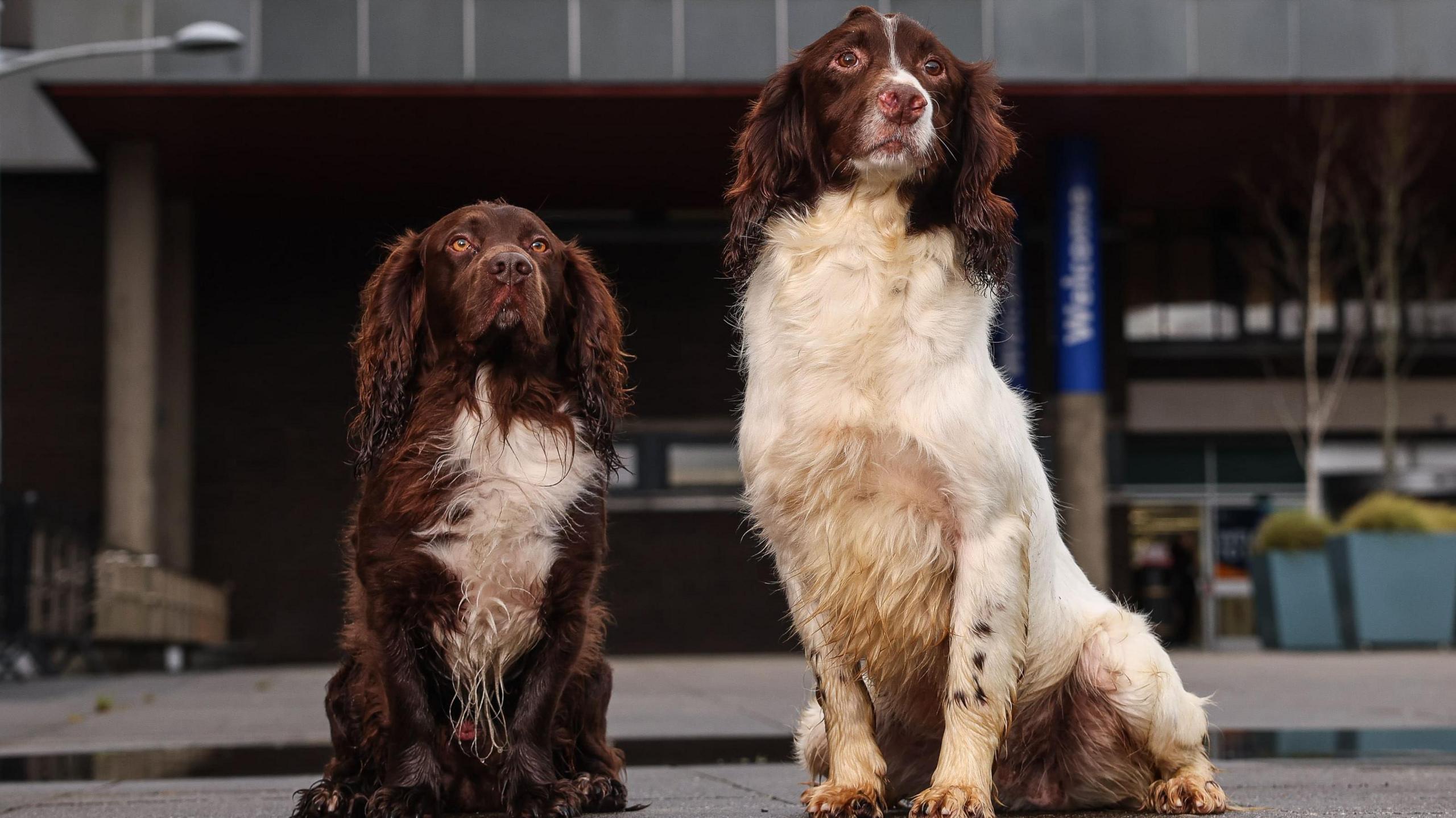
Northern Ireland remains the only part of the UK without a specialist vet school
- Published
The launch of Northern Ireland's first veterinary nursing degrees have raised hopes that staff shortages in the industry can be eased amid a "brain drain" of aspiring vets.
The full and part-time courses will start at Ulster University's Coleraine campus in September.
Veterinary practice in Northern Ireland is facing staff shortages, which vets have warned could jeopardise some of the services they provide.
Northern Ireland remains the only part of the UK without a specialist vet school.
An industry representative told BBC News NI that the courses are welcome and that it was vital to tackle "the brain drain and create our own excellence here".
"We have been calling for veterinary degrees here in Northern Ireland for a long time as a lot of those who travel to study don't return," said Dr Esther Skelly-Smith from the North of Ireland Veterinary Association (Niva).
Ballymoney-based vet, Dr Adam Conn, who runs his own practice said more veterinary nurses would help ease the pressure on the entire industry.
"The beauty of having more veterinary nurses being made available would take the workloads off your vets by letting your nurses do more small procedures and routine things like vaccinations that historically vets would have done," he said.
"More places means more veterinary nurses. It's a growing sector and recruiting for both vets and veterinary nurses is extremely hard, so there's definitely plenty of jobs out there if we could get the people to fill them."
What vet courses are there in Northern Ireland?
The Ulster University degrees are a four-year, full-time course in veterinary nursing, external and a part-time course in animal healthcare and practice, external, which is aimed at upskilling registered nurses.
The university said the two degrees are designed to address the growing demand for skilled veterinary professionals across Northern Ireland.
They will include clinical practice time in veterinary surgeries across Northern Ireland, with the first 30 graduates expected in 2029.
A university spokesperson said interest in the full-time course has been "strong" and applications remain open until the end of January 2025.
Applications for the part-time course will stay open until September.
While North West Regional College and the College of Agriculture, Food and Rural Enterprise (CAFRE) offer diplomas in veterinary nursing and veterinary care support, the Ulster University courses are Northern Ireland's first degrees in veterinary nursing.
Dr Conn employs 11 vets and one veterinary nurse at his practice but would ideally like to recruit another nurse.
He studied for his degree in Glasgow and said because people have to travel outside of Northern Ireland to do their veterinary degree, "not that many come home to work".
"It's a really big drawback to veterinary in Northern Ireland - having to leave the country, you can't live at home, suddenly you're stuck with rising rent costs, massive fees, and it definitely puts a lot of people off doing veterinary," Dr Conn said.
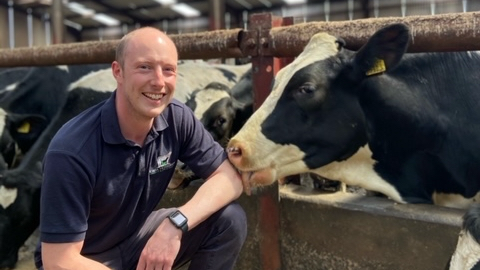
Dr Adam Conn is a vet based in Ballymoney and says it is "extremely hard to recruit vets and veterinary nurses in Northern Ireland"
Analysis: More to do on vet shortage
by Louise Cullen, BBC News NI agriculture correspondent
Just as in human medicine, nurses play an important role in the delivery of veterinary care, so anything that could help boost their numbers is more than welcome.
But the shortage of veterinary surgeons is a bigger mountain to climb.
A report commissioned by the former agriculture minister Edwin Poots found the creation of a veterinary school in Northern Ireland needed more work to justify the estimated investment of more than £75,000 per student.
With a vet-to-nurse ratio of 1:3, rather than 1:1 as in Great Britain, there is pressure on vets to meet the needs of pet owners and farmers alike.
Vets are key to protecting our agri-food industry, whether through the bovine TB testing programme or monitoring animal welfare in marts.
Offering professional development and career-launching opportunities like these courses for veterinary nurses will hopefully make the profession more attractive, fill the jobs that Dr Conn speaks of, and go some way to help relieve the pressure on veterinary services as a whole.
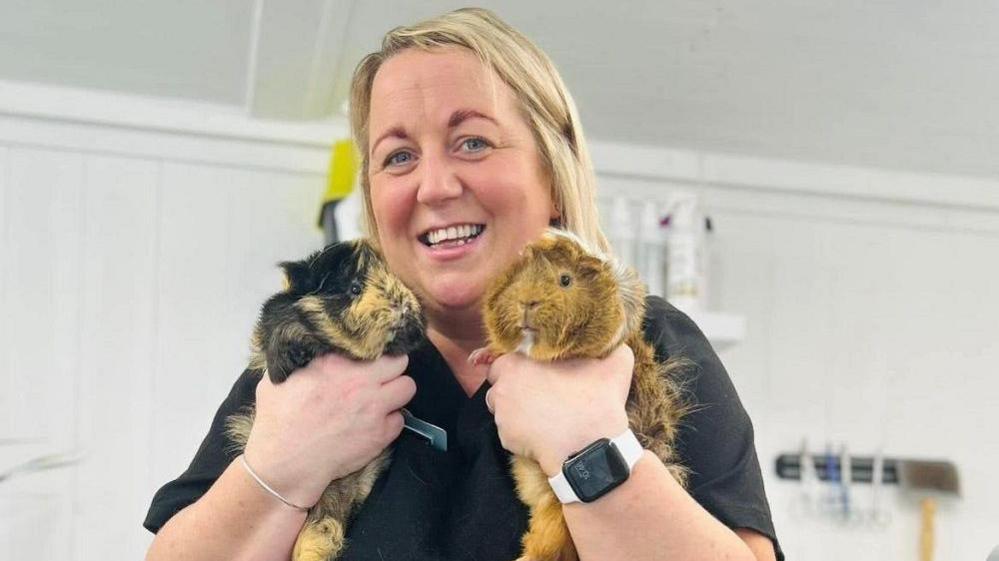
Veterinary nurse Claire McConaghy said she might consider doing the degree in the future as the BSc (Hons) degree in Animal Healthcare and Practice is aimed at upskilling registered veterinary nurses
Claire McConaghy, a veterinary nurse based in Ballinderry, was among the first to qualify from the CAFRE Greenmount campus in 2008.
She said lots of people switch careers into grooming or dog training "because they can't get enrolled into veterinary nursing courses due to high demand".
She hopes these courses will encourage others into the profession, particularly as vets are struggling to get fully-qualified nurses.
"I think it gives people better opportunity to pursue their career because the other courses are so oversubscribed - so it's great, especially because this is a degree as well."
Ms McConaghy said she might consider doing the degree herself as the part-time animal healthcare and practice degree is aimed at upskilling registered nurses.
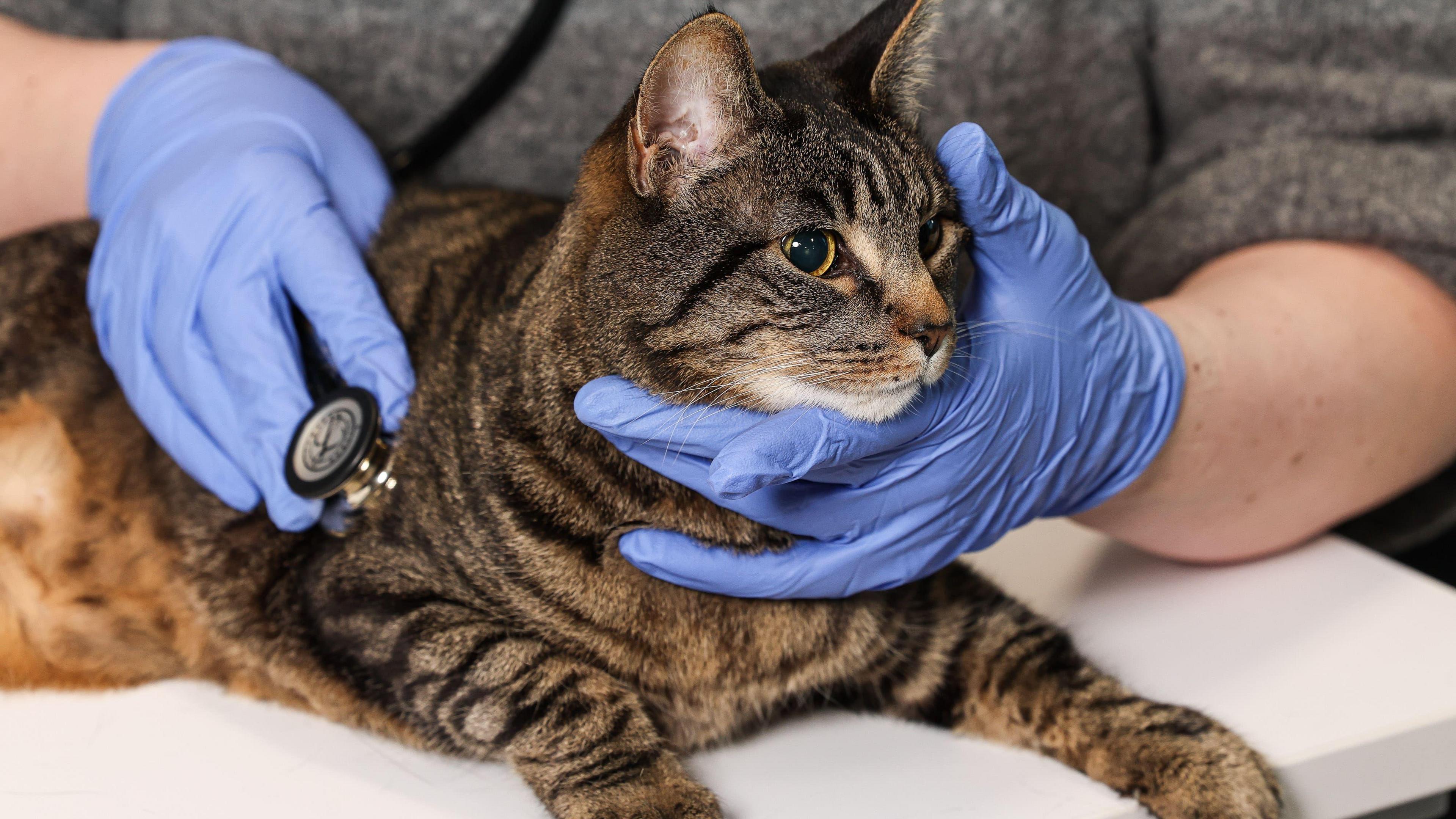
In 2023, a report from the Department of Agriculture, Environment and Rural Affairs, external (Daera) found that a "high proportion of vets who leave Northern Ireland to study veterinary medicine do not return".
It identified "a number of perceived and actual veterinary sector issues", but given the cost of providing courses for veterinary students "any further consideration would be subject to capital and revenue affordability".
Dr Skelly-Smith, from the North of Ireland Veterinary Association (NIVA), said the organisation "very much welcomes" the announcement of the degree courses.
"We have a massive farming and equine sector here in Northern Ireland and it's vital we have highly qualified and skilled professionals for them.
"Veterinary nurses are an essential part of a vet practice team as they relieve the pressures put on vets and ease the workflow process. These courses can only be a good thing."
Dr Skelly-Smith said she hoped it will lead to a university course for vets as well.
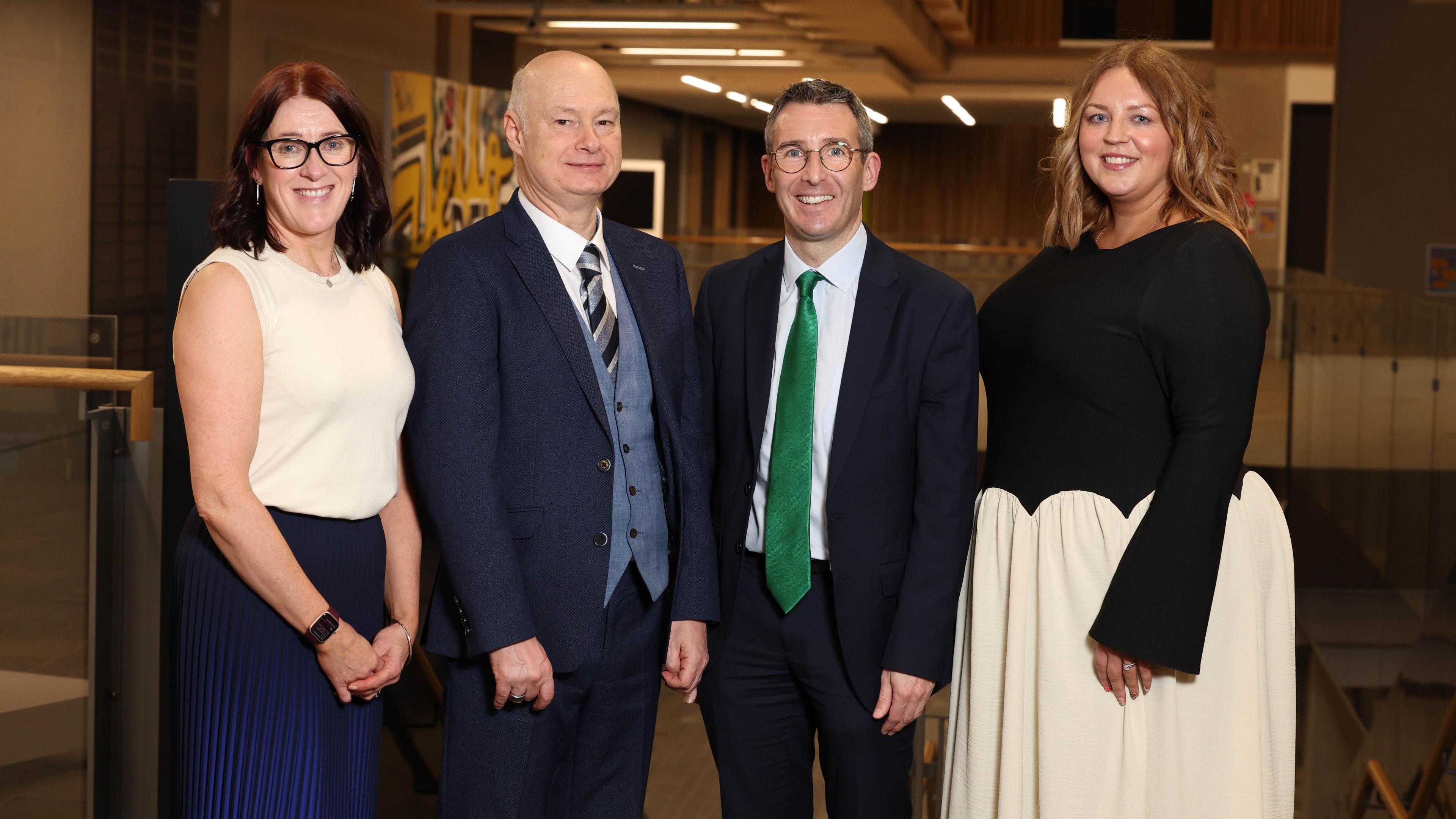
Agriculture and Environment Minister Andrew Muir (second from right) said the courses will "advance NI's high animal health and welfare standards"
Agriculture Minister Andrew Muir welcomed the announcement, saying it was "further advancing Northern Ireland's high animal health and welfare standards".
The vice-chancellor of Ulster University, Prof Paul Bartholomew, said the courses were "a fantastic addition" to the university while course director Bethan Pinhey said the part-time course will be "transformative".
Related topics
- Published15 May 2019
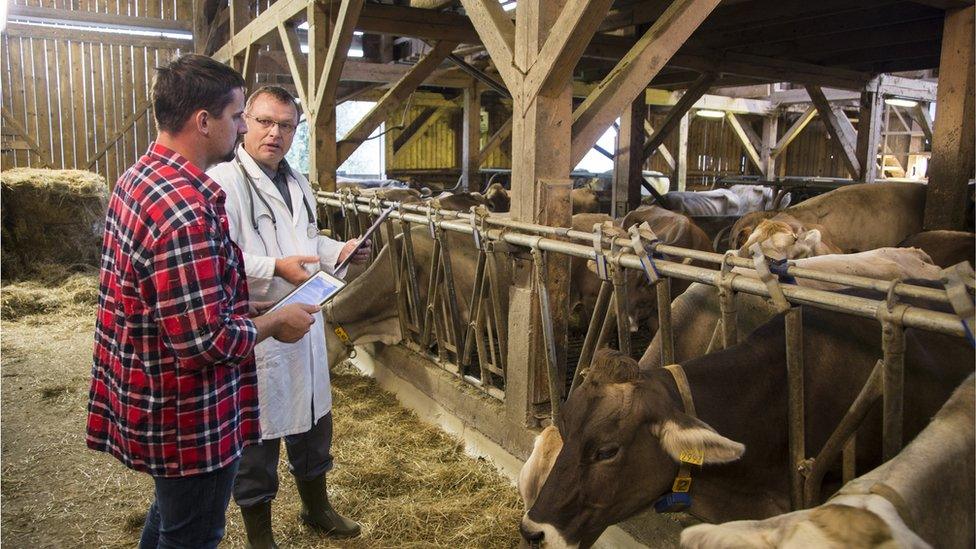
- Published30 April 2024
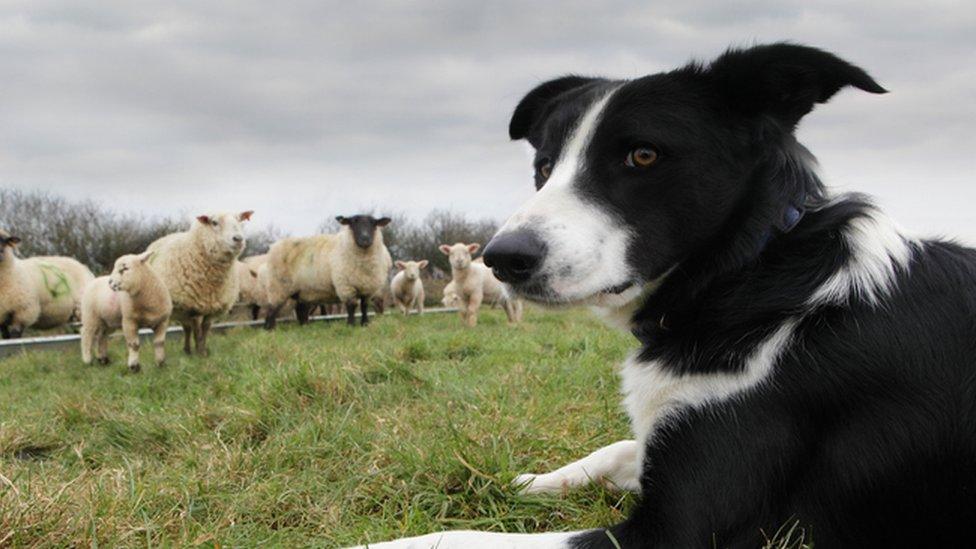
- Published9 January 2024
